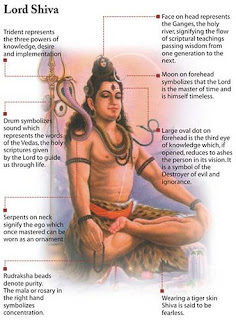The Difference Between Dharma and Karma

If the universe is intelligent and hierarchically organized, would it be possible for humans to unveil the cosmic rules that control the many facets of human existence?
Almost three-thousand years ago (some would even say five-thousand years ago), the verses of The Mahabharata, the longest epic poem ever written, brought revelations about the universal laws, life, death, pain and enlightenment. There are many interpretations of the verses but many traditions and religions share the same terms The key to dig into the beauty of the teachings of ancient India, is to understand two main concepts: dharma and karma.
What is Dharma?
The dharma is the law that governs the universe and that affects everything in collective and individual levels in order to lead every living being to perfection. It can be understood as the path rather than the final achievement itself, as the word "dharma" means “law” or "righteousness." It’s the law through which everything — from cells to galaxies — evolves.
According to Buddhism, the final achievement of humans should be the nirvana, when one doesn't have to reborn again, free of pain and suffering, totally detached from the physical world. The dharma is the path that enables humans to reach the state of nirvana.
Collective and Individual Dharma
The collective dharma is the set of rules that involves all living beings enabling each person to walk towards evolution. Although the final destination is the same to every person, the ways to achieve it is not the same as people play different roles in the planet’s maintenance. So, there are collective levels of dharma that apply to a smaller group of people, like specific social classes.
The dharma of the monks, for instance, is different from the dharma of the peasants, because each one of these groups have a different duty in relation to the collective dharma. A monk needs to act like a monk and a peasant needs to act as a peasant. Some might say that the dharma of every mother is to take care of her kids, as the dharma of every husband is to care and provide for his family. The dharma of each role one plays in society is no more than just acting as such.
What is Karma?
The word "karma" means “action” and is best known as the law of action and reaction, that is, every action generates a consequence. Since everything people do generates a reaction that will impact in other people’s actions, the whole universe is connected through a karmic net.
It’s important to point out that karma is not necessarily a negative reaction, it actually refers to the law of action and reaction that can be either good or bad. When one doesn’t live according to his or her dharma, he or she attracts negative karma and when one lives according to his or her dharma, he or she attracts good karma, or good consequences.
Collective and Individual Karma
According to some eastern traditions, planets and galaxies are living beings that are equally subjected to the laws of dharma and karma. When humanity goes through difficult times like the advents of tsunamis, hurricanes and earthquakes that causes death and suffering to many people, it could be a negative reaction as consequences of the transgression of the dharma.
Every person lives the consequence of his or her actions through the law of karma. Pain and suffering are a reminder that one is not in the right path. So, the karma is a mechanism to push a person back to the right-action, to his or her duty as an individual. The best way to avoid a negative karma is living according to the dharma.
Basically all sacred books of humanity bring information about the path that one may follow to reach nirvana, heaven or simply peace. They are the many interpretations of dharma according to each culture, different aspects of the same laws that apply to the world as a whole.








Comments
Post a Comment